These images
show dozens of villagers on a remote Atlantic island hunting down and
slaughtering a pod of whales, colouring the water red with blood.
The
practice, known as whale driving, saw children as young as five take part in
the hunt of some 180 whales in the village of Sandavágur on Vágar island last
month.
Every
summer, hundreds of pilot and beaked whales are killed across the Faroe
Islands, a Danish archipelago located hundreds of miles off the Scottish coast
between Norway and Iceland.
Whale
driving on the Faroe Islands date back to the late 16th century and involve
residents herding pods of whales into shallow waters.
They are
then killed using a 'spinal lance' that is inserted through the animal's neck
to break its spinal cord.
While locals
have been carrying out the annual hunts ahead of the sparse winter months for
centuries, with the meat served salted or cut into steaks and the blubber
sliced up and eaten raw, the practice often come off as shocking and gruesome
to outsiders.
Cambridge
University student Alastair Ward, 22, was visiting the archipelago last month
to celebrate his graduation when he and a friend stumbled across the whale
hunt.
He said: 'We were walking round this bay when this family of locals ran over and said 'you're lucky, there's a whale coming'.
'We thought it would just be one being dragged in but more and more boats kept appearing on the horizon.
'I couldn't believe how many whales there were. They were driving them into the bay, prodding them with their oars.
'Once they got close enough, the whole town sprinted in and started hacking at them. Even the children were getting involved, pulling on the ropes and jumping on the carcasses.
'We were just sat there speechless and a bit upset but you couldn't really pull yourself away.' He added: 'The squealing from the whales was horrible.
'They were
putting hooks on ropes in their blowholes to pull them in and then hacking at
them with knives. They didn't die in a very humane way.
'A lot of
the locals were all saying how it's the same as farming but I couldn't really
agree with that.
'Children
were jumping on top of them. They just have such a different attitude to us
because they're brought up on it.'
The hunt has
been criticised by animal rights campaigners in the past, who say the ritual is
cruel and unnecessary.
However, the
local government says the hunting is not only sustainable, but ensures that the
islands, which has a limited opportunities for farming, are as self-sufficient
as possible.
Each whale
provides several hundreds of kilos of meat and blubber, food which would
otherwise have to be imported from abroad to the islands at a cost to the
locals and the environment.
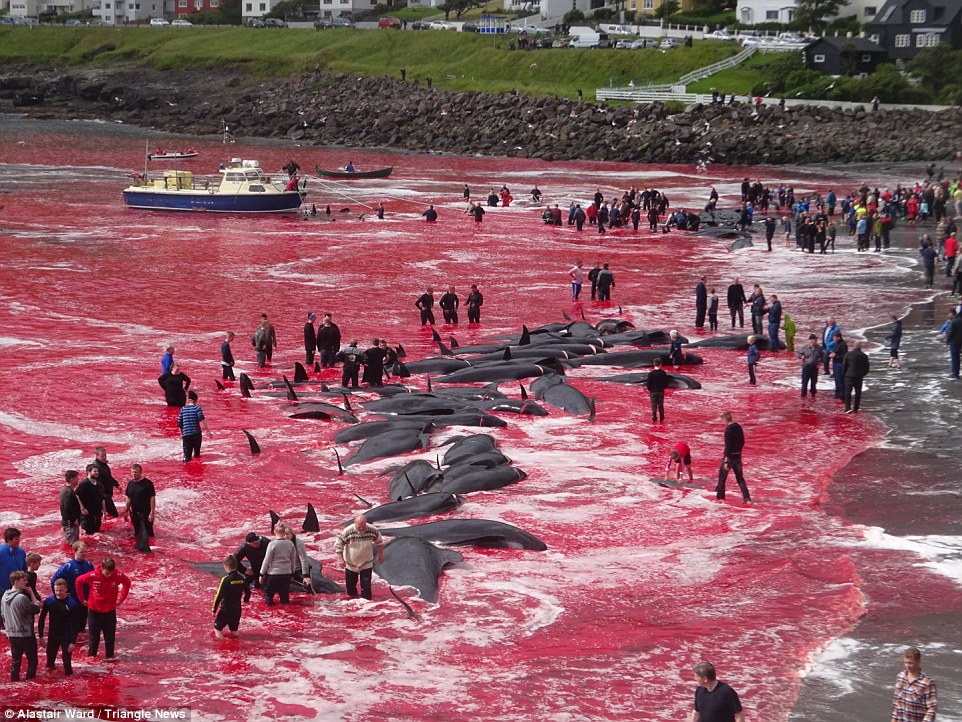
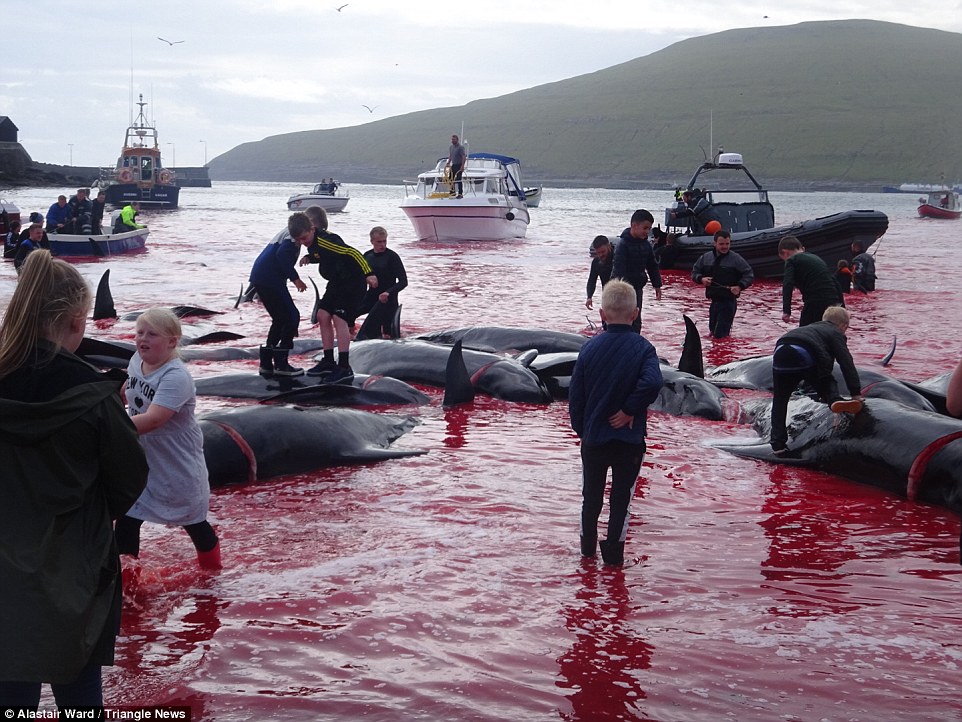
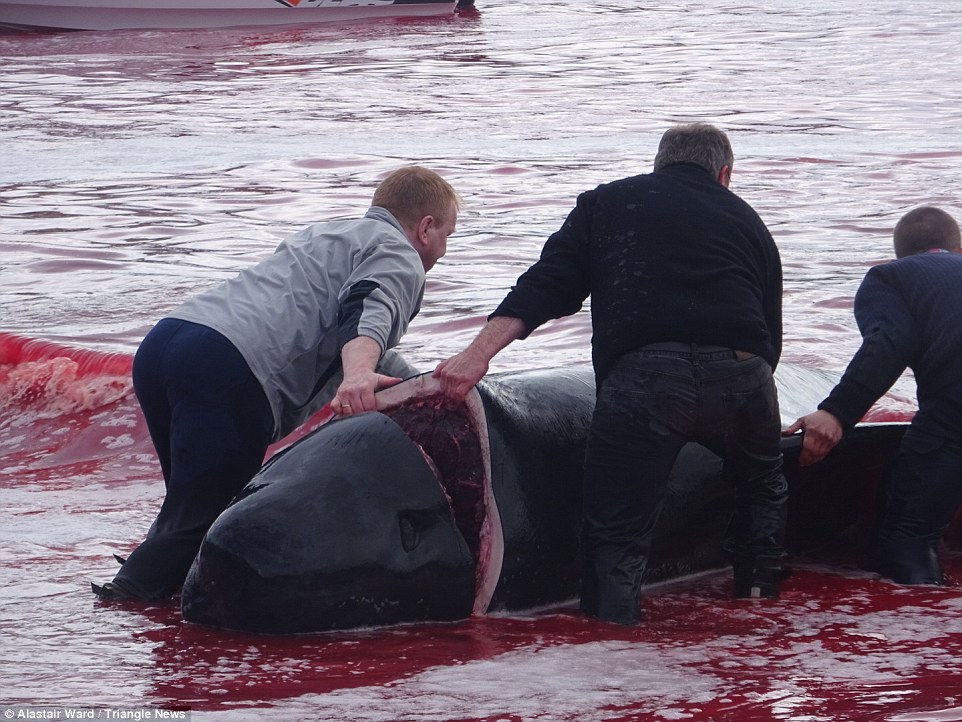
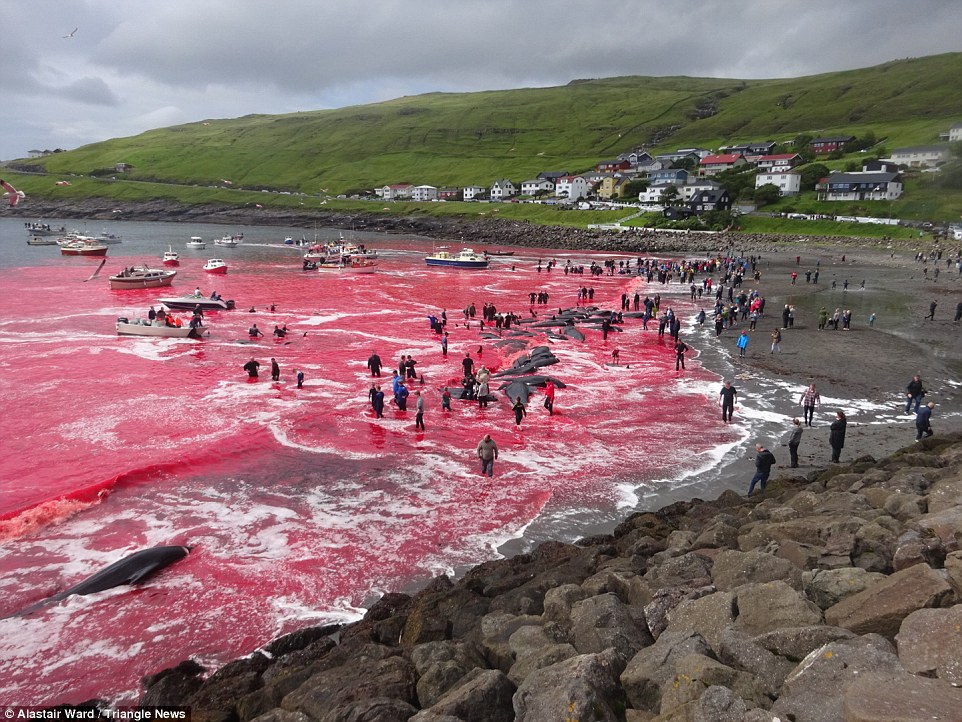
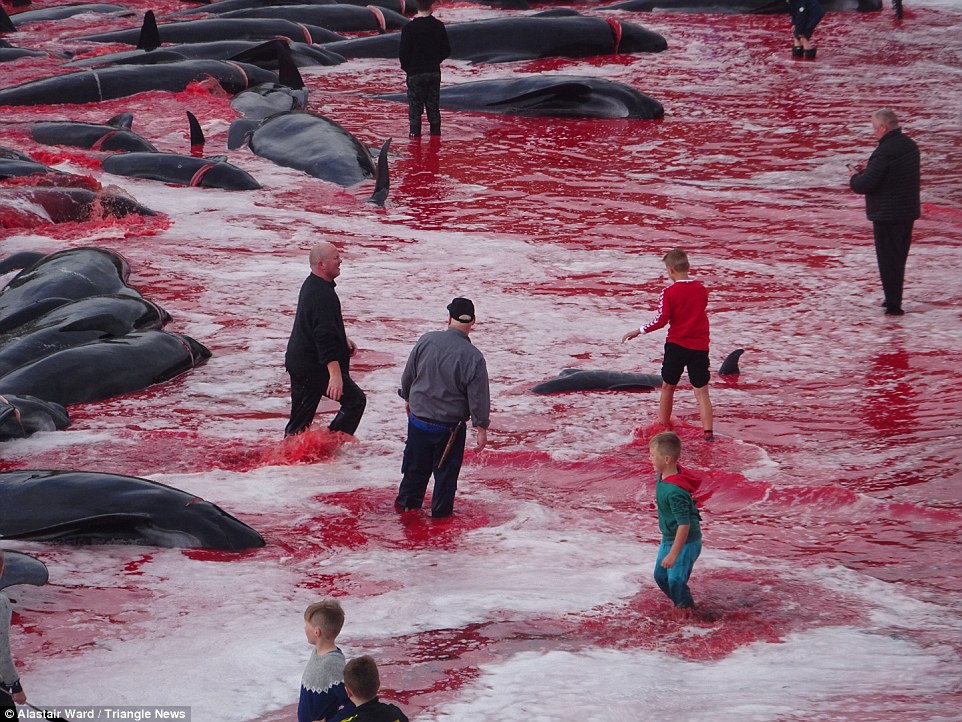
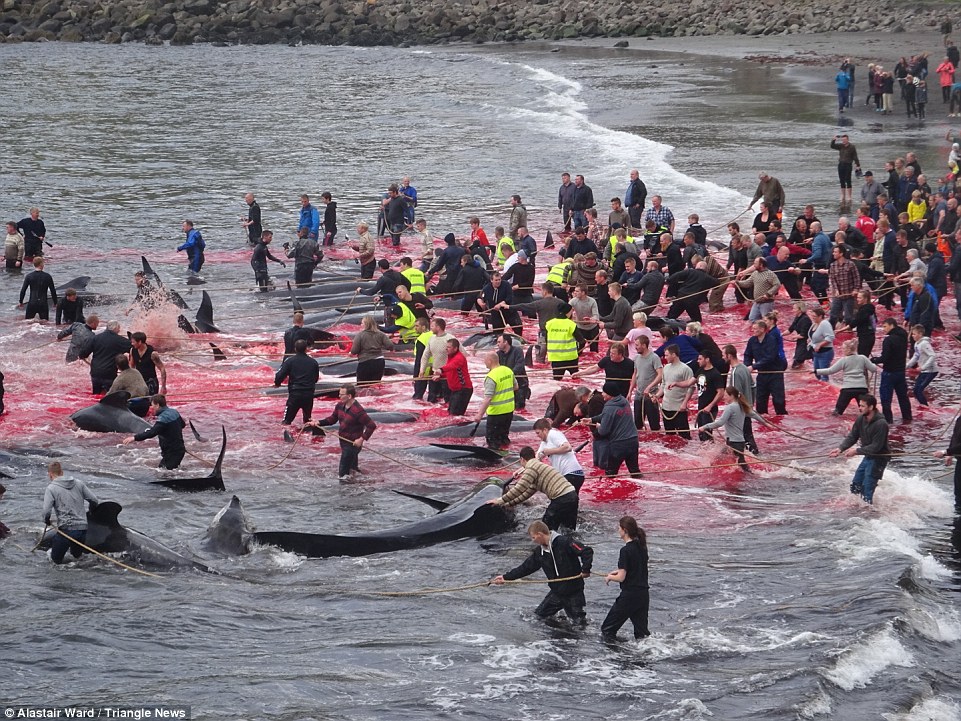
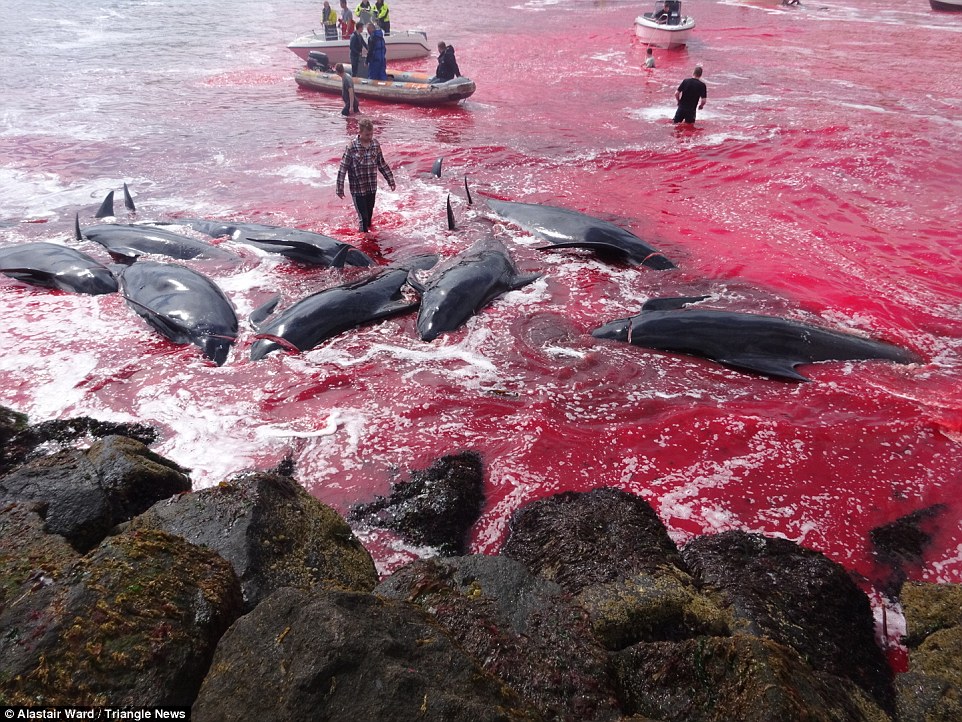
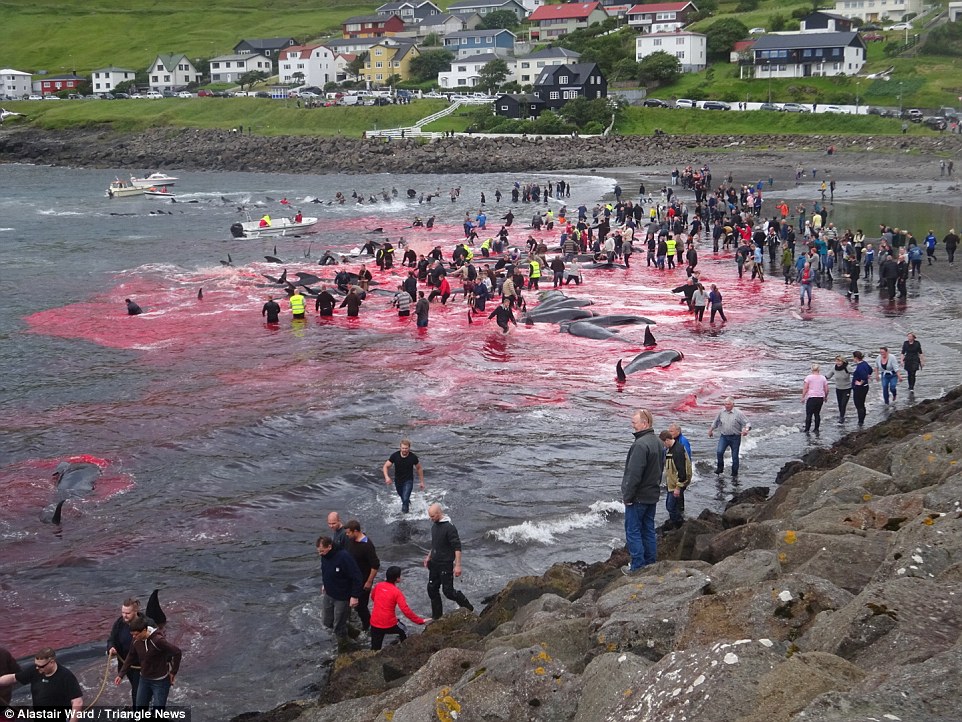
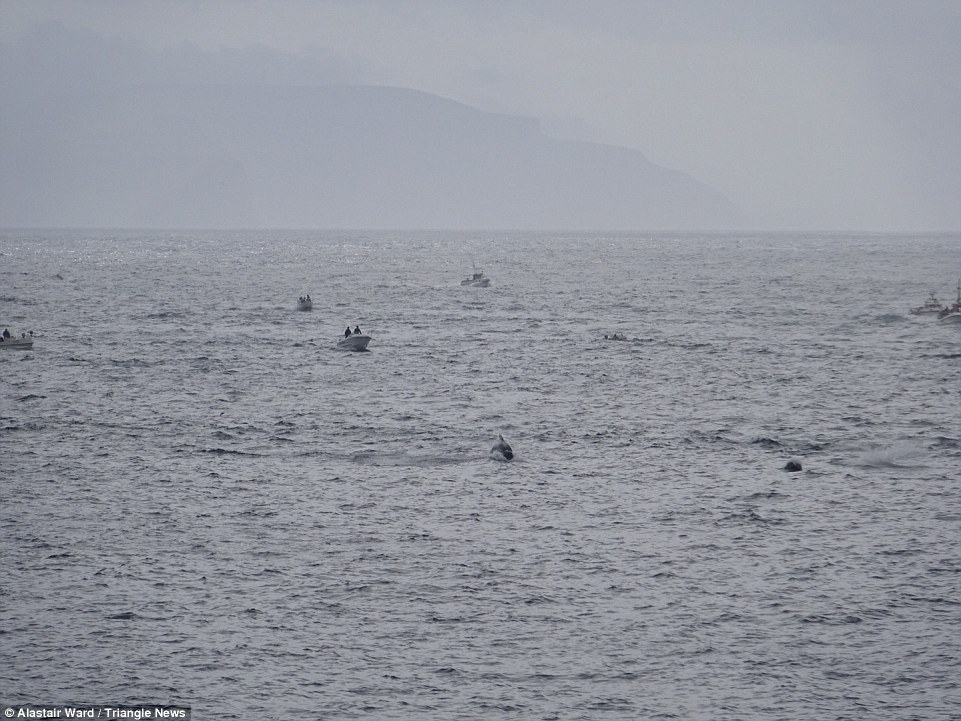
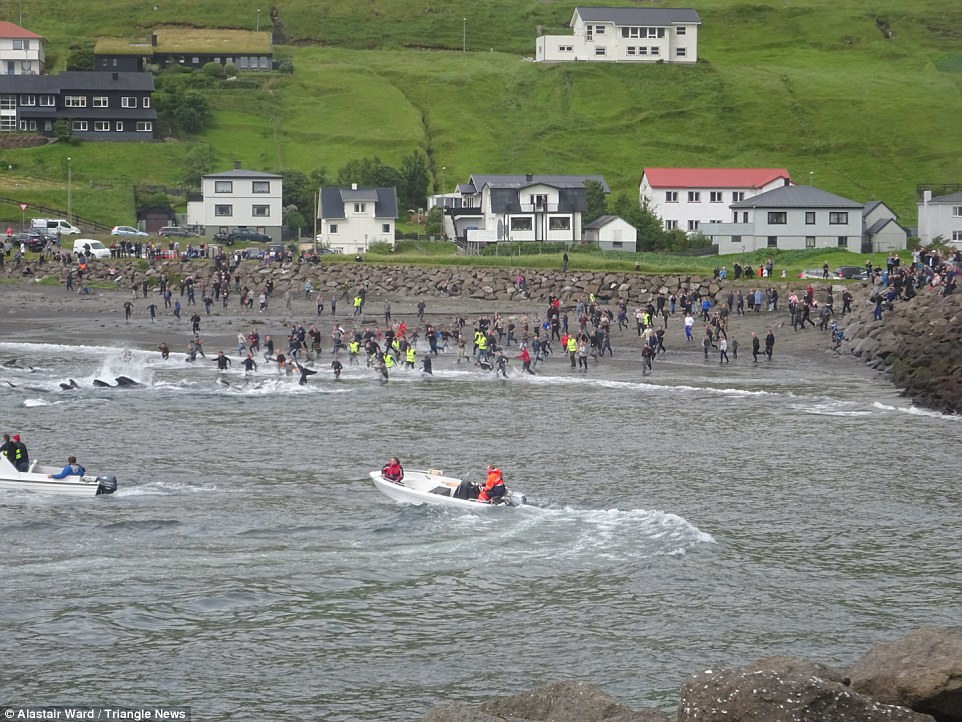
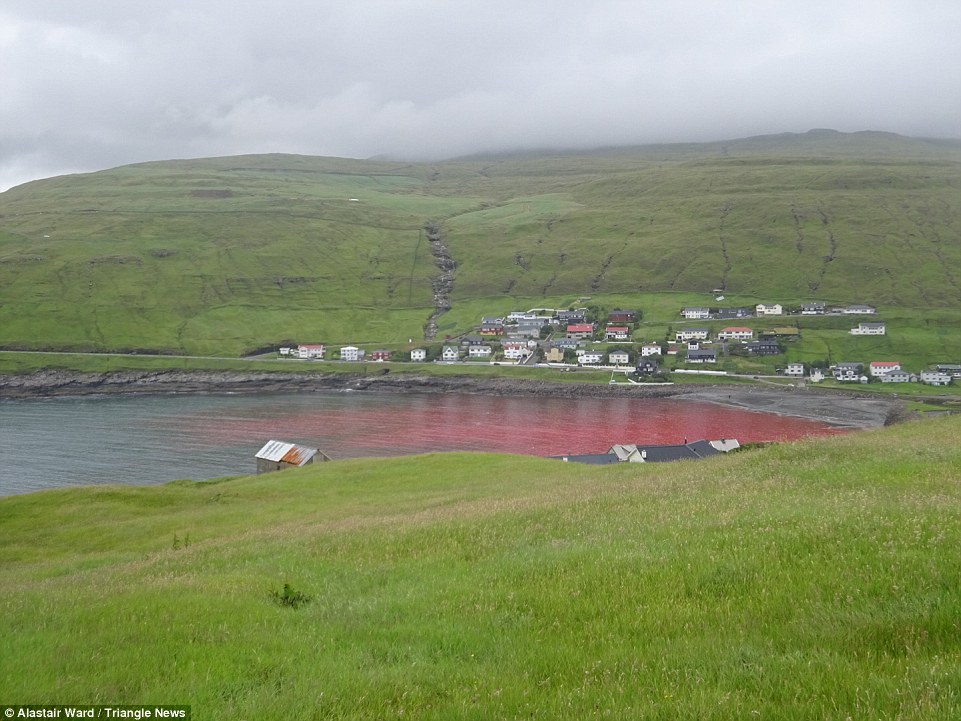
Comments
Post a Comment